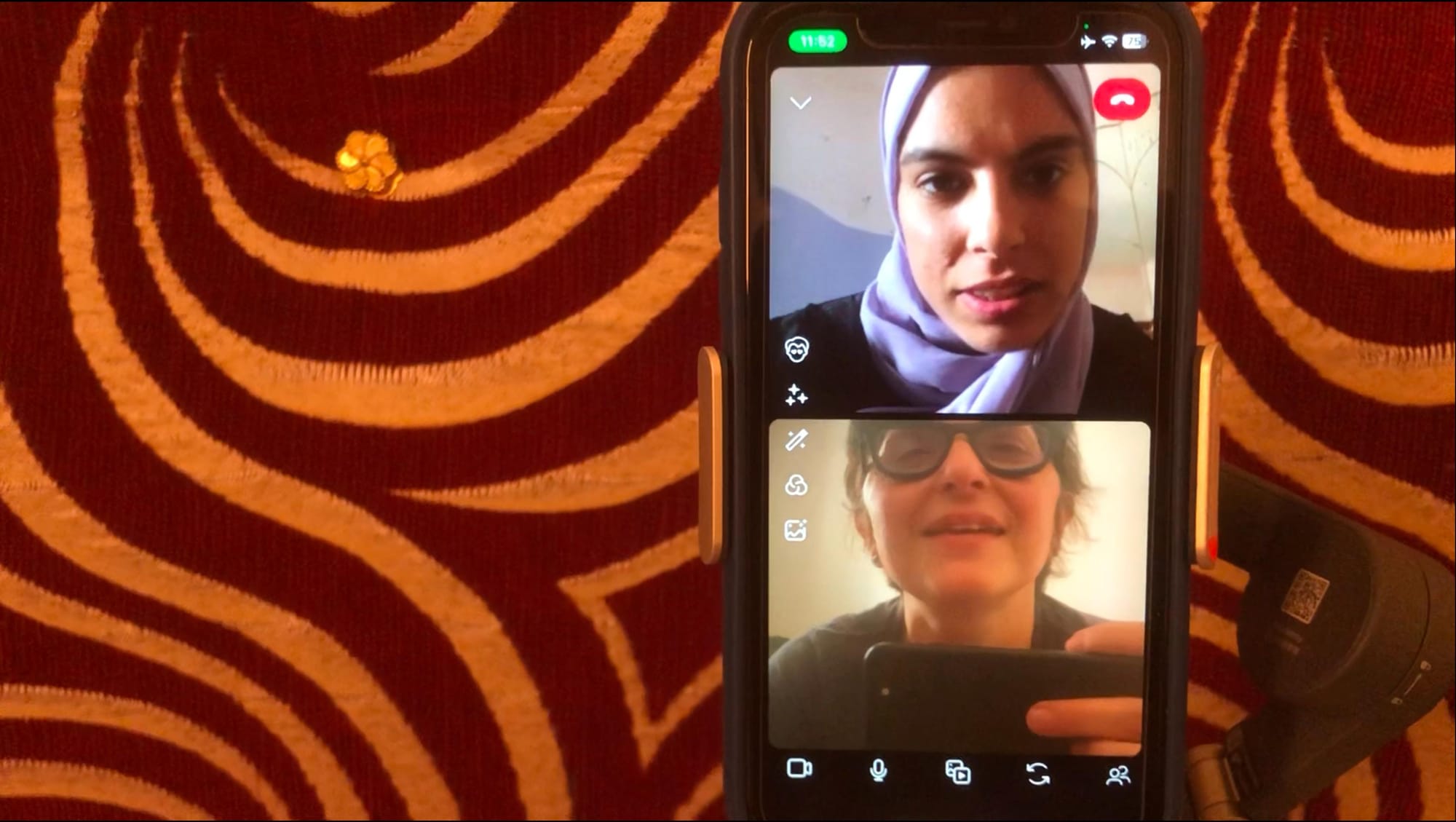Boston Palestine Film Festival 2025 Interview: Sepideh Farsi

The Boston Palestine Film Festival runs with a mix of in-person and online availability from October 17 through October 26. Click here for the schedule and ticket info, and watch the site for Joshua Polanski’s continuing coverage.
Put Your Soul on Your Hand and Walk is one of the most important films of 2025. Sepideh Farsi’s latest documentary is a very personal document of life under Israeli siege and bombardment in Gaza, peering into what life in Gaza is like in 2025 through the eyes of a single Palestinian woman: the 24-year-old Fatma Hassona, a photographer and citizen journalist. Farsi, the Iranian director now based in France, may not be Palestinian but, having lived through the 1979 revolution and the 1981–1982 Iran Massacres, she is no stranger to life under oppressive governments. Her films are also banned in her home country.
Hassona was killed by an Israeli missile strike that specifically and precisely targeted her family’s residential apartment on April 16, 2025. Six other members of her family, including her pregnant sister and her 10-year-old brother, were also killed in the strike. The Hassona family massacre occurred just one day after the Cannes Film Festival selected the film for programming. The festival released a statement a week after her killing that very generally condemned violence while also removing the Israeli perpetrators of violence from their murderous culpability.
I was grateful to discuss Put Your Soul on Your Hand and Walk with Farsi over Zoom earlier this week. We talked about her bold stylistic choices, how her experiences in Iran shaped her impulse to tell this story, the genocide, and how Fatma Hassona’s memory will live on with the people of Gaza. She also informed me about a new targeted bombing of the apartment building where Hassona lived and was killed, to destroy the rest of the building just before the “ceasefire” deal.
The following interview has been condensed and edited for clarity. Some of the above text is an adapted selection from Joshua’s full review at In Review Online.
BOSTON HASSLE: The film ends after the death of Hassona’s friend. Death now feels personal and part of her story. It’s sad to say, but it ends with a sense that Fatma could also die, which makes her death even more tragic. Did you have any more calls? Why did that feel like the right place to stop the story?
SEPIDEH FARSI: Actually there is quite a bit more in the film, after the death of her friend.
BH: Yes, it’s not immediate.
SF: There is a very significant call after that, when we talk about depression. There’s that one and there is the video that is the long traveling sequence. But it is true that that moment was a turning point.
I think it was a moment when I realized that she felt death was close to her. But this was not the reason. We did keep calling each other till the last day, until the day before her targeting. Those were recorded as well. The reason I decided at some point to stop integrating the new material in the film was that I couldn’t shoot and edit at the same time. It is a very hard way of functioning. I was the editor, and physically it was impossible to keep shooting and editing the film. At that point, I realized that I had a structure [that] was functioning, so I kept shooting but without adding it to the existing structure after that point in time. I also wanted to be in touch with her [and] talk to her. It was a routine kind of lifeline that we had.
At that point, late November or December last year, I felt that I had reached a stable version. The film had a structure which was emotionally viable. There was a narrative arc.
And then when she was killed, I actually decided not to change the film at all. It was still the same film that I kept for a few weeks. And I just finished working on the post-production and only a few days before the Cannes premiere, I decided to include that little part at the end because I thought that it was important for the viewers to see. Basically, the film is what it was when Fatma was still alive.
Continue reading at the Boston Hassle.